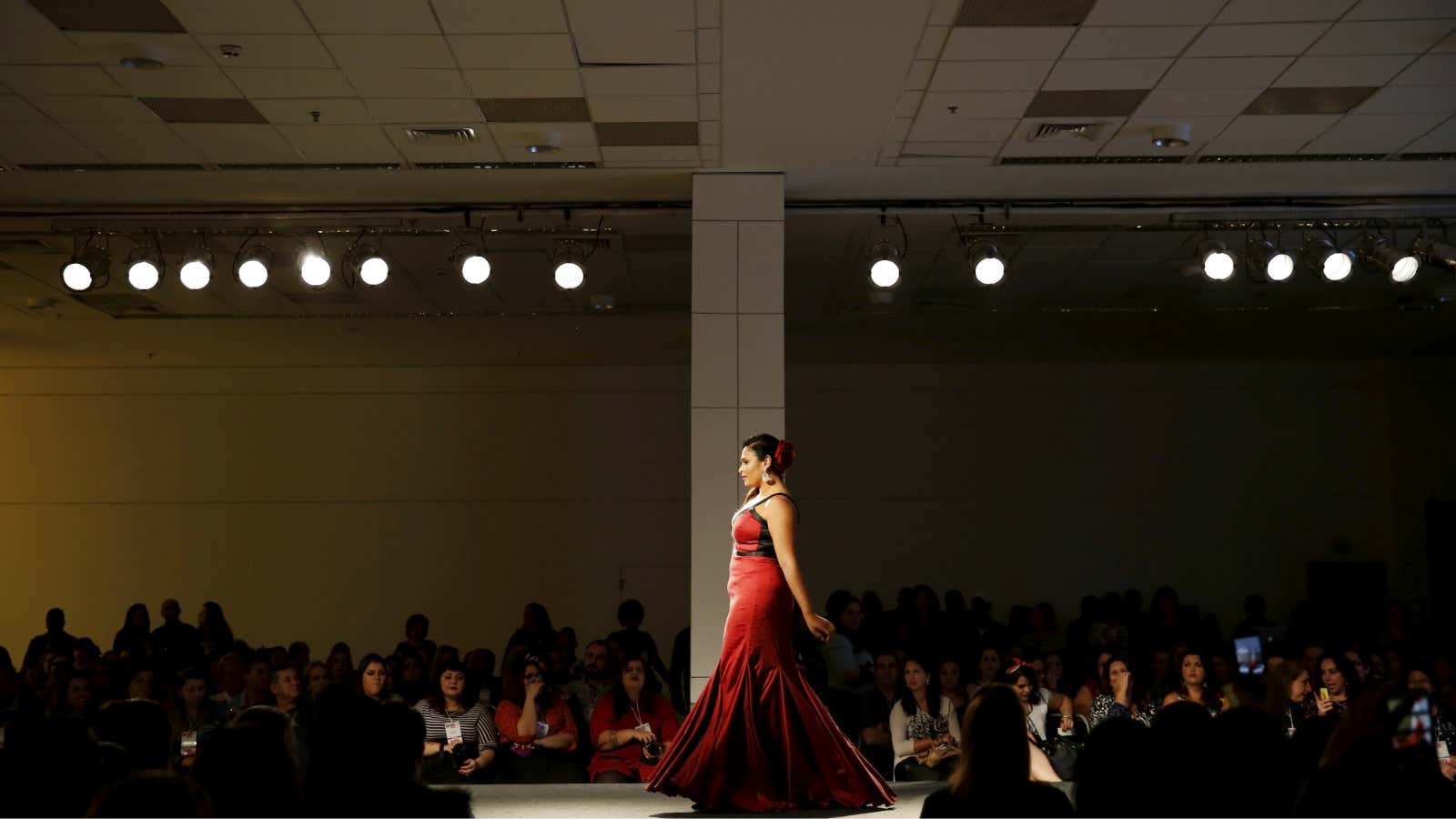Fashion shows in India are finally getting real.
The Lakme Fashion Week (LFW)—India’s marquee fashion event that will take place in the first week of August—will for the first time have plus-sized people walking the ramp. Plus-size models refers to those who fit into apparel sizes above XXL or “extra, extra large.”
Industry observers say this is keeping with the fact that a good section of Indians are overweight, and most are not tall or skinny like conventional models who walk the ramp—an acknowledgement that has taken over two decades to come by since the LFW began.
Through the show, backed by aLL—a brand known for over-sized men’s and women’s clothing—LFW hopes to make fashion more “accessible.”
“We feel for the fashion industry to grow, we need to step out and be more accessible and this is a step in that direction,” said Jaspreet Chandok, vice-president and head, fashion, IMG Reliance, which hosts the fashion week.
India has one of the largest populations of obese people. A 2014 survey by the medical journal Lancet ranked India as the world’s third most obese country, behind China and US. At an average of 5 feet, Indian women are also among its shortest.
A large chunk of Indians just don’t fit into sizes offered by brands and rely on tailored clothing or ethnic wear.
The non-model
Plus-size clothing, thus, is a growing business.
As of 2012, the market for this segment was estimated at $1.8 billion and expected to double by 2017. aLL, which has 50 stores currently, was launched by the Future Group over a decade ago to cater to this market. Since then more retailers have begun hawking clothing for sizes over XXL.
This has also prompted a slow but sure change in the way models are perceived. ”The most interesting models of recent years have been (from) outside the accepted body type—they are plus sized, androgynous, transgender, or older mommies—as if fashion is looking for newer themes and challenging established notions,” said Shefalee Vasudev, author of Powder Room: The Untold Story of Indian Fashion.
